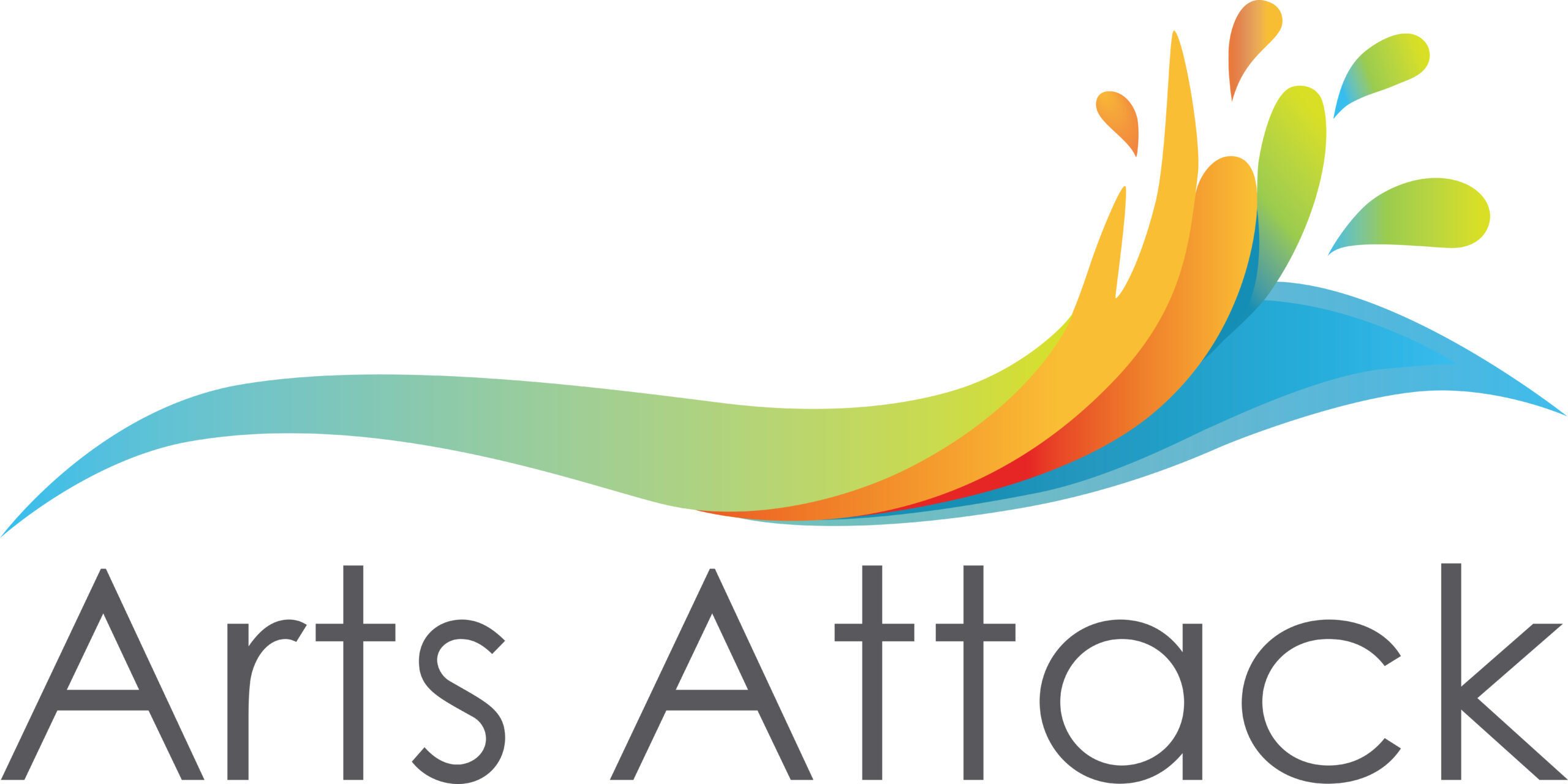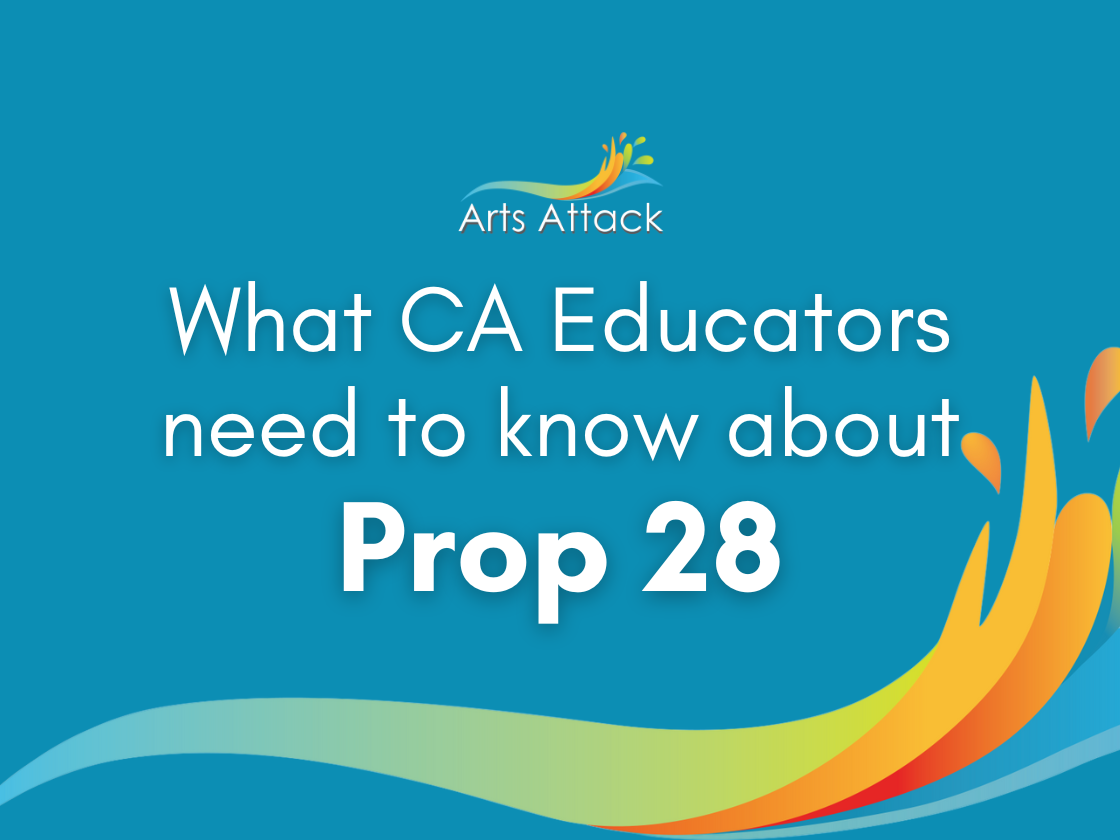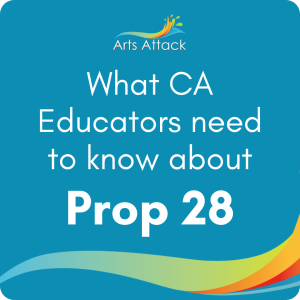What Educators Need to Know About Prop 28
JANUARY 2026 ANNOUNCEMENT:
As of Monday, January 12, 2026, the California Department of Education (CDE) Proposition 28—Arts and Music in Schools Funding staff will begin offering general Prop 28 office hours to local educational agencies (LEAs) through a self-schedule option.
LEAs may schedule appointments in 10-minute increments on available days and times. Once verified, a Zoom link will be provided. The Prop 28 office will continue to provide support via phone and email inquiries.
Please note, the CDE does not approve or deny individual LEA requests for allowable expenditures. All expenditures should be consistent with statute. Additional guidance for LEAs to substantiate compliance with this requirement (e.g., example worksheets, etc.) is available on the Proposition 28: Arts and Music in Schools web page. Additionally, many questions may be addressed on our AMS FAQs web page.
Please share this update with colleagues who may benefit and encourage them to join the AMS listserv by sending a blank message to join-prop28@mlist.cde.ca.
UPDATE PROVIDED BY: California Department of Education Prop28@cde.ca.gov
CDE Proposition 28: Arts and Music in Schools Funding web page
JANUARY 2025 UPDATE
Prop 28, also known as The Arts and Music in Schools – Funding Guarantee and Accountability Act, aims to bring about substantial changes in the California education system.
Proposition 28: the Arts and Music in Schools—Funding Guarantee and Accountability Act (Prop 28 AMS) provides annual funding for arts education programs (approximately $800 million to $1 billion annually). Prop 28: AMS is in addition to the Prop 98 education funding guarantee.
This update is brought to you by CREATE CA
Prop 28 summary:
- A Statewide Permanent Funding Source for Arts Education. All PreK to 12th grade public schools receive ongoing funding (i.e., allocated annually)
-
-
- Each year’s allocated funds are available for up to three fiscal years. LEAs continue to receive funding each year even if we haven’t spent the last year’s allocation. Please see the CDE’s Year-at-a-Glance(PDF) for key dates and deadlines.
- Funding is allocated using an equity formula, with additional funding going to economically disadvantaged students (i.e., students qualifying for a Free or reduced-price lunch).
- Funds Must Increase Access to Arts Education. Local Education Agencies (LEAs) (e.g., School Districts, County Offices of Education, and Charter Schools) must certify that the funds were used to supplement (i.e., increase) funding for existing arts education programs and not supplant (i.e., replace) existing funding for those programs.
- If a school spends $1 million on arts education in the 2022/23 school year, they are expected to spend $1 million plus their Prop 28 allocation in the 2023/24 school year (the first year Prop 28 is available).
-
- Most funding for arts education instructors: At least 80% are restricted to certified or classified school district employees to provide arts education instruction.
- Up to 20% are for arts education support, including teacher training, supplies, materials, and arts educational partnership programs.
- LEAs with 500 pupils or less are exempt from this requirement. For “good cause,” the CDE may waive school districts from the above funding requirement.
- Reporting Requirements: Each school site principal or program director must develop an expenditure plan. LEAs must submit an annual board-approved report detailing how they spent the funds and certify that they used them per the requirements.
Prop 28 Key Questions:
- How much is my school getting? You can find your school district and school site funding amounts in these Excel spreadsheets:
- Where can I find my school district’s Prop 28 Annual Report that details how the funds were spent? The attachment below is a master file of the LEA submissions to the CDE, which will be updated as necessary.
- What type of arts education programs can be funded with Prop 28? Create CA recommends that all expenditures support instruction and activities that develop artistic literacy as outlined by the California Arts Standards. Please see the CDE website for more details.
- What funds are considered the baseline for the supplant/supplement requirement? It’s Create CA’s current understanding that all annual and one-time funds spent on arts education in the 2022-2023 school year will qualify for the baseline (i.e., the previous year’s funds that need to be maintained to access Prop 28 funds).
- Are there any funds exempt from the “do not supplant” requirement? Our current understanding is No. Nowhere does Prop 28 say that the source of funds for existing arts programs (federal, state, local, or private) creates any exception to the initiative’s clear and plain language (from Austin Beutner, Prop 28 author).
- What is the waiver process? The Arts Music in Schools web portal to submit written waiver requests, reports, and certifications associated with Prop 28 AMS. The portal and other CDE resources related to AMS can be found here. Here is a CDE webinar that overviews the waiver process and audit procedures.
- How can we ensure that currently employed arts education teachers aren’t let go this year and are hired back using Prop 28 funding next year? Prop 28 requires that funding supplement existing arts education funding and programming. This means there should be an increase in the number of arts educators overall.
- Funding existing arts education positions with Prop 28 (i.e., supplanting prior funding for Prop 28 funds) or firing existing arts positions to hire new arts educators are both supplanting – because there isn’t an increase in the overall number of arts education full-time equivalents. It will not be supplanting if a part-time arts educator is made full-time with Prop 28 funds (only the additional hours can be paid for with Prop 28).
- Can schools pool funds, and can school districts help facilitate inter-school programs? Yes, schools can share teachers, teacher aides, and community arts partners. School districts can help facilitate this sharing among schools. For example, a teacher could teach at one school on Monday and Tuesday and at another on Wednesday, Thursday, and Friday (from Prop 28 Implementation Advisory Council).
- Can Proposition 28 funds be used for nonprofit arts providers, primarily if insufficient funds exist to hire a district arts education teacher? Yes. The California Department of Education may provide a waiver from the 80% funding requirement. Without a waiver, up to 20% of funds are available for various arts education supports, including training, supplies, materials, and arts education partnerships.
What Can I do to support Prop 28 and Arts Education in my School?
- Get informed. Learn about the benefits of arts education and the current status or arts education access in your school.
- See this page to get information on key arts education research and data from your school.
- Review Create CA’s advocacy resources: Advocates’ North Star
- Find out how much Prop 28 funding your school district received (23/24 school year XLSX, 24/25 school year XLSX) and review your school district’s Prop 28 report (2023–24 Prop 28: LEA Annual Reports) (XLSX).
- Formulate a Message. Present your case backed by data and examples of successful arts programs elsewhere. Consider the following: What do you want your school district to know and do? What specific arts education benefits align with your school’s priorities?
- Engage Stakeholders. Connect with your school site principal, school board, district superintendent, advisory committees, and parent groups (e.g., PTA/PTO).
- Add Prop 28 and Arts Education to the next PTA, School Site Council or LCAP meeting agenda. Share your message and outstanding questions.
- Provide public comment at the next District School Board meeting. Use our Guide to Providing Public Comment at School Board Meetings.
- Schedule meetings with with school administrators, school board members, and community leaders to share the information you gathered.
- Raise Awareness: Share resources and carry your message at events.
- Forward this blog post to your school site and district leadership as well as community partners.
- Use the Contact Your School Leader tool to Look up your school leaders and let them know that every child in your community deserves access to a quality arts education.
- Use the calls to action on this webpage to encourage other arts advocates to fight for equitable implementation for Prop 28
- Share this downloadable one-sheet for parents and guardians; the Spanish version of the one-sheet.
- Share these arts education strategic planning resources and advocate for an arts plan and VAPA coordinator if your school district doesn’t have them.
- Share the Prop 28 AMS Planning Toolkit with your school district leaders.
- Contact local media outlets and share your message and concerns. If you are a student, contact your student paper editor and ask them to write an article on the status of arts education in your district and how it’s using Prop 28 funds. Here is a student example.
- Organize. Reach out to local arts organizations, parent groups, and advocacy groups to organize events, public comment at school board meetings, or public letters.
Key Resources:
- Create CA Resources
- Prop 28 AMS Planning Toolkit
- Prop 28 AMS Common Questions
- Prop 28 AMS Advocacy Toolkit
- Prop 28 Parent Flyer in English and Spanish
- Guide to Providing Public Comment at School Board Meetings
- Your Arts Education Rights in California
- Advocates’ North Star (compiles Create CA resources)
California Department of Education Resources
- Arts and Music in Schools Main Page
- Arts and Music in Schools FAQs
- Year-at-a-Glance (PDF) provides dates for the AMS funding report deadlines and AMS Portal submission windows for required reporting.
- CDE Prop 28 Listserv: Sign up for the Prop 28 listserv by sending a blank message to join-prop28@mlist.cde.ca.gov .
- AMS Portal: https://www8.cde.ca.gov/ams
- CDE Prop 28 Email: Prop28@cde.ca.gov
Los Angeles County Office of Education Prop 28 Resources:
- VAPA Spending Suggestions (PDF)
- Waiver Information and Summary (PDF)
- P28 Waiver Request (Template)
- 2023-24 P28 Annual Report (Template)
Other Resources


